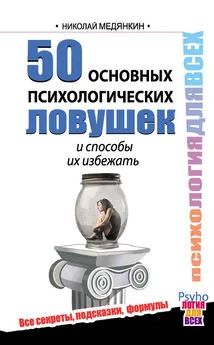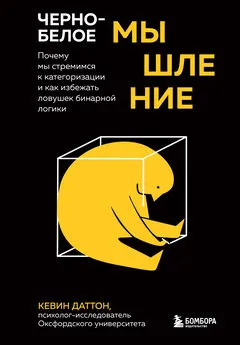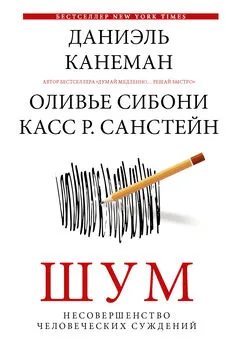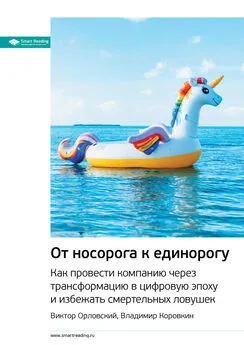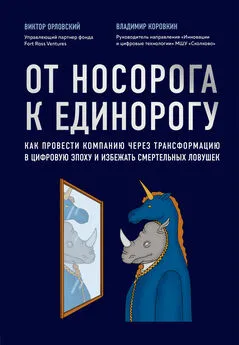Оливье Сибони - Думай и не ошибайся! Как избежать ловушек сознания
- Название:Думай и не ошибайся! Как избежать ловушек сознания
- Автор:
- Жанр:
- Издательство:Литагент АСТ (БЕЗ ПОДПИСКИ)
- Год:2021
- Город:Москва
- ISBN:978-5-17-133321-8
- Рейтинг:
- Избранное:Добавить в избранное
-
Отзывы:
-
Ваша оценка:
Оливье Сибони - Думай и не ошибайся! Как избежать ловушек сознания краткое содержание
Думай и не ошибайся! Как избежать ловушек сознания - читать онлайн бесплатно ознакомительный отрывок
Интервал:
Закладка:
Reason, J., Human Error , Cambridge, Cambridge University Press, 1990.”
Разное
Исследование … деятельности двух тысяч компаний:Lovallo, Dan, and Olivier Sibony. “ The Case for Behavioral Strategy.” McKinsey Quarterly, March 2010.
бессознательная тренировка противостояния предрассудкам:Lublin, Joann S. “ Bringing Hidden Biases into the Light .” Wall Street Journal, January 9, 2014. См. также Shankar Vedantam, “ Radio Reply: The Mind of the Village ,” The Hidden Brain, National Public Radio, March 9, 2018, featuring Mahzarin Banaji and others.
теория «подталкивания»:Thaler, Richard H., and Cass R. Sunstein. Nudge: Improving Decisions About Health, Wealth, and Happiness . New Haven, CT:
Yale University Press, 2008.
«отделы корпоративного бихевиоризма»:Güntner, Anna, Konstantin Lucks, and Julia Sperling-Magro. “Le ssons from the Front Line of Corporate Nudging .” McKinsey Quarterly, January 2019.
осознание, психология : Sibony, Olivier, Dan Lovallo, and Thomas C. Powell. “ Behavioral Strategy and the Strategic Decision Architecture of the Firm. ” California Management Review 59, no. 3 (2017): 5–21.
Опросив восемь сотен руководителей, занимавших места в советах директоров крупных корпораций, специалисты McKinsey выяснили:Bhagat Chinta, and Conor Kehoe. “ High-Performing Boards: What’s on Their Agenda?” McKinsey Quarterly, April 2014.
«Если мы такие глупые, как мы добрались до Луны?»:Nisbett, Richard E., and Lee Ross. Human Inference: Strategies and Shortcomings of Social Judgment . Englewood Cliffs, NJ.: Prentice Hall, 1980.
Nisbett, Richard E., and Lee Ross. Human Inference: Strategies and Shortcomings of Social Judgment . Englewood Cliffs, NJ: Prentice Hall, 1980. Цитата по Chip Heath, Richard P. Larrick, and Joshua Klayman. “ Cognitive Repairs: How Organizational Practices Can Compensate for Individual Shortcomings. ” Research in Organizational Behavior 20, no. 1 (1998): 1–37.
«Вынюхивающие нефть» самолеты
Gicquel, François. “Rapport de la Cour des Comptes sur l’affaire des avions renifleurs.” January 21, 1981. https://fr.wikisource.org/w/index.php?ol-did=565802.
Lascoumes, Pierre. “ Au nom du progrès et de la Nation: Les ‘avions renifleurs.’ La science entre l’escroquerie et le secret d’État.” Politix 48, no. 12 (1999): 129–55.
Lashinsky, Adam. “How a Big Bet on Oil Went Bust.” Fortune, March 26, 2010.
Склонность к подтверждению
Nickerson, Raymond S. “Confirmation Bias: A Ubiquitous Phenomenon in Many Guises.” Review of General Psychology 2, no. 2 (1998): 175–220.
Soyer, Emre, and Robin M. Hogarth. “Fooled by Experience.” Harvard Business Review, May 2015, 73–77.
Stanovich, Keith E., and Richard F. West. “On the Relative Independence of Thinking Biases and Cognitive Ability.” Journal of Personality and Social Psychology 94, no. 4 (2008): 672–95.
Stanovich, Keith E., Richard F. West, and Maggie E. Toplak. “Myside Bias, Rational Thinking, and Intelligence,” Current Directions in Psychological Science 22, no. 4 (2013): 259–64.
Фейк-ньюс и стена фильтров
Lazer, David M. J., et al. “The Science of Fake News.” Science 359 (2018): 1094–96.
Kahan, Dan M., et al. “Science Curiosity and Political Information Processing,” Political Psychology 38 (2017): 179–99.
Kraft, Patrick W., Milton Lodge, and Charles S. Taber. “Why People ‘Don’t Trust the Evidence’: Motivated Reasoning and Scientific Beliefs.” Annals of the American Academy of Political and Social Science 658, no. 1 (2015): 121–33.
Pariser, Eli. The Filter Bubble: What the Internet Is Hiding from You. London: Penguin, 2011.
Pennycook, Gordon, and David G. Rand. “Who Falls for Fake News? The Roles of Bullshit Receptivity, Overclaiming, Familiarity, and Analytic Thinking.” SSRN working paper no. 3023545, 2018.
Taber, Charles S., and Milton Lodge. “Motivated Skepticism in the Evaluation of Political Beliefs.” American Journal of Political Science 50, no. 3 (2006): 755–69.
Склонность к подтверждению в работе криминалистов
Dror, Itiel E. “Biases in Forensic Experts.” Science 360 (2018): 243.
Dror, Itiel E., and David Charlton. “Why Experts Make Errors.” Journal of Forensic Identification 56, no. 4 (2006): 600–616.
J. C. Penney
D’Innocenzio, Anne. “J. C. Penney: Can This Company Be Saved?” Associated Press in USA Today, April 9, 2013.
Reingold, Jennifer. “How to Fail in Business While Really, Really Trying.” Fortune, March 20, 2014.
Кризис репликации
Ioannidis, John P. A. “Why Most Published Research Findings Are False.” PLoS Medicine 2, no. 8 (2005): 0696–0701.
Lehrer, Jonah. “The Truth Wears Off.” The New Yorker, December 2010.
Neal, Tess M. S., and Thomas Grisso. “The Cognitive Underpinnings of Bias in Forensic Mental Health Evaluations.” Psychology, Public Policy, and Law 20, no. 2 (2014): 200–211.
Simmons, Joseph P., Leif D. Nelson, and Uri Simonsohn. “False-Positive Psychology: Undisclosed Flexibility in Data Collection and Analysis Allows Presenting Anything as Significant.” Psychological Science 22, no. 11 (2011): 1359–66.
Разное
Taleb, Nassim Nicholas. The Black Swan: The Impact of the Highly Improbable , 2d ed. New York: Random House, 2010.
Эффект ореола
Collins, Jim, and Jerry I. Porras. Built to Last: Successful Habits of Visionary Companies. New York: Harper & Row, 1982.
Nisbett, Richard E., and Timothy DeCamp Wilson. “The Halo Effect: Evidence for Unconscious Alteration of Judgments.” Journal of Personality and Social Psychology 35, no. 4 (1977): 250–56.
Peters, Thomas J., and Robert H. Waterman Jr. In Search of Excellence: Lessons from America’s Best-Run Companies. New York: Warner Books, 1984.
Rosenzweig, Phil. The Halo Effect. and the Eight Other Business Delusions That Deceive Managers. New York: Free Press, 2007.
Принудительное ранжирование
Cohan, Peter. “Why Stack Ranking Worked Better at GE Than Microsoft.” Forbes, July 2012.
Kwoh, Leslie. “‘Rank and Yank’ Retains Vocal Fans.” Wall Street Journal, January 31, 2012.
Опасности стратегической имитации
Nattermann, Philipp M . “Best Practice Does Not Equal Best Strategy.” McKinsey Quarterly, May 2000, 22–31.
Porter, Michael E. “What Is Strategy?” Harvard Business Review, November-December 1996.
Ошибка выжившего
Brown, Stephen J., et al. “Survivorship Bias in Performance Studies.” Review of Financial Studies 5, no. 4 (1992): 553–80.
Carhart, Mark M. “On Persistence in Mutual Fund Performance.” Journal of Finance 52, no. 1 (1997): 57–82.
Ellenberg, Jordan. How Not to Be Wrong: The Power of Mathematical Thinking. London: Penguin, 2015.
Использование интуиции менеджерами и руководителями
Akinci, Cinla, and Eugene Sadler-Smith. “Intuition in Management Research: A Historical Review.” International Journal of Management Reviews 14 (2012): 104–22.
Dane, Erik, and Michael G. Pratt. “Exploring Intuition and Its Role in Managerial Decision Making.” Academy of Management Review 32, no. 1 (2007): 33–54.
Hensman, Ann, and Eugene Sadler-Smith. “Intuitive Decision Making in Bank-ing and Finance.” European Management Journal 29, no. 1 (2011): 51–66. Sadler-Smith, Eugene, and Lisa A. Burke-Smalley. “What Do We Really Understand About How Managers Make Important Decisions?” Organizational Dynamics 9 (2014): 16.
Интуитивное принятие решений
Cholle, Francis P. The Intuitive Compass: Why the Best Decisions Balance Reason and Instinct. Hoboken, NJ: Jossey-Bass/Wiley, 2011.
Gigerenzer, Gerd. Gut Feelings: Short Cuts to Better Decision Making. London: Penguin, 2008.
Gladwell, Malcolm. Blink: The Power of Thinking Without Thinking . New York: Little, Brown, 2005.
Klein, Gary. Sources of Power: How People Make Decisions. Cambridge, MA: MIT Press, 1998.
Эвристика и искажения
Kahneman, Daniel. Thinking, Fast and Slow. New York: Farrar, Straus and Giroux, 2011.
Tversky, Amos, and Daniel Kahneman. “Belief in the Law of Small Numbers.” Psychological Bulletin 76, no. 2 (1971): 105–10.
“ Judgment Under Uncertainty: Heuristics and Biases. ” Science 185 (1974): 1124–31.
Сотрудничество и соперничество Канемана и Клайна
Kahneman, Daniel, and Gary Klein. “Conditions for Intuitive Expertise: A Failure to Disagree.” American Psychologist 64, no. 6 (2009): 515–26.
“Strategic Decisions: When Can You Trust Your Gut?” Интервью Даниэля Канемана и Гари Клайна. McKinsey Quarterly, March 2010.
Применимость профессионализма в разных областях
Shanteau, James. “Competence in Experts: The Role of Task Characteristics.” Organizational Behavior and Human Decision Processes 53, no. 2 (1992): 252–66.
“Why Task Domains (Still) Matter for Understanding Expertise.” Journal of Applied Research in Memory and Cognition 4, no. 3 (2015): 169–75.
Tetlock, Philip E. Expert Political Judgment: How Good Is It? How Can We Know? Princeton, NJ: Princeton University Press, 2005.
(Не)применимость интуиции в принятии кадровых решения
Dana, Jason, Robyn Dawes, and Nathanial Peterson. “Belief in the Unstructured Interview: The Persistence of an Illusion.” Judgment and Decision Making 8, no. 5 (2013): 512–20.
Heath, Dan, and Chip Heath. “ Why It May Be Wiser to Hire People Without Meeting Them.” Fast Company, June 1, 2009.
Moore, Don A. “How to Improve the Accuracy and Reduce the Cost of Personnel Selection.” California Management Review 60, no. 1 (2017): 8–17.
Schmidt, Frank L., and John E. Hunter. “The Validity and Utility of Selection Methods in Personnel Psychology: Practical and Theoretical Implications of 85 Years of Research Findings.” Psychological Bulletin 124, no. 2 (1998): 262–74.
Читать дальшеИнтервал:
Закладка:
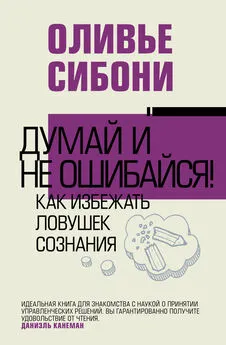

![Владимир Коровкин - От носорога к единорогу [Как провести компанию через трансформацию в цифровую эпоху и избежать смертельных ловушек] [litres]](/books/1064401/vladimir-korovkin-ot-nosoroga-k-edinorogu-kak-pro.webp)
